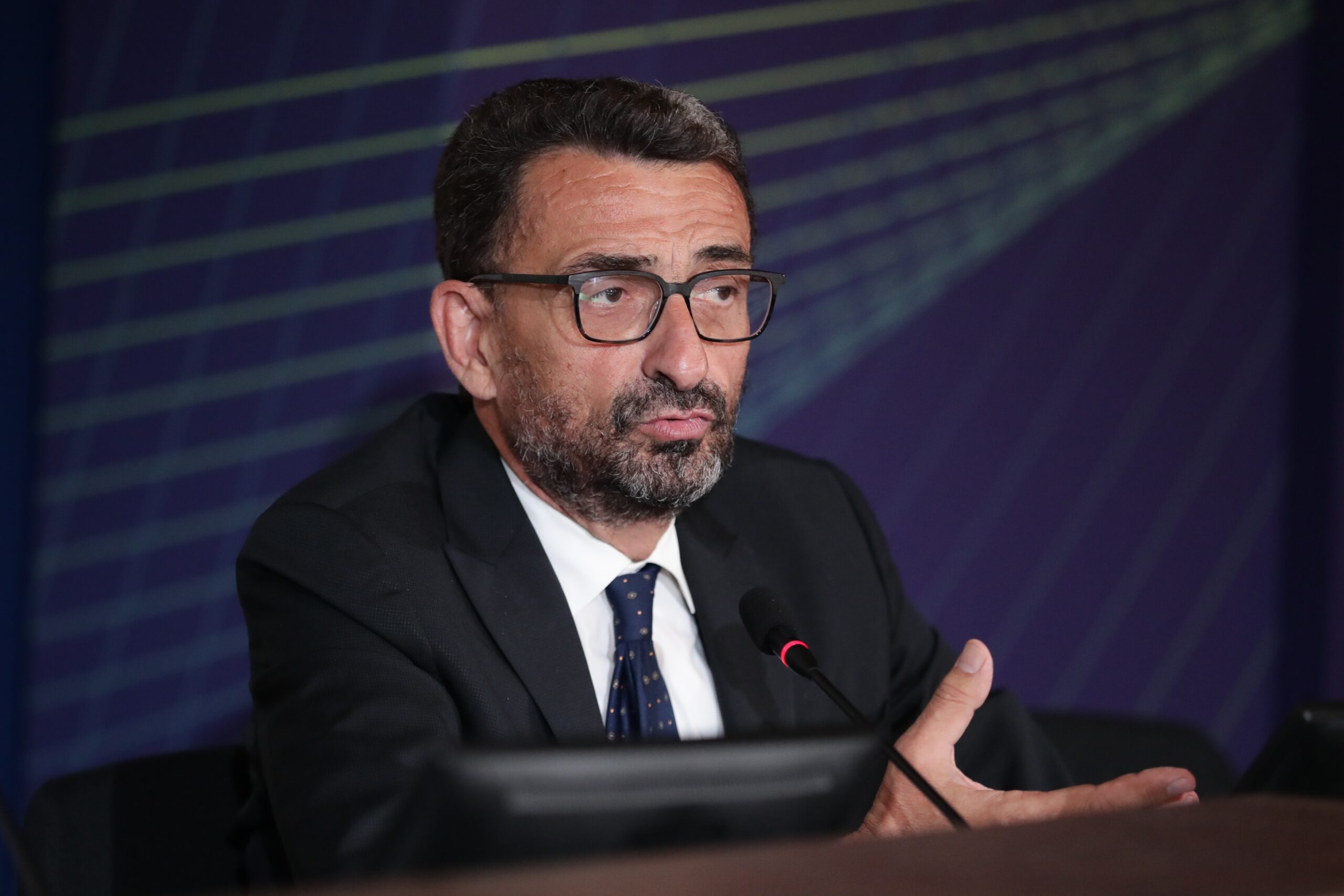What does the new commissioner Tabarelli think of the former Ilva

The government has appointed two new extraordinary commissioners of Acciaierie d'Italia: one is Davide Tabarelli, an energy economist. Here's what you think of the former Ilva crisis
Business Minister Adolfo Urso today appointed two other extraordinary commissioners of Acciaierie d'Italia, the steel company in crisis previously known as ILVA: they are Giovanni Fiori , professor at Luiss and expert in corporate governance, and Davide Tabarelli, economist and founder of Nomisma Energia, an energy research company.
The two will work alongside Giancarlo Quaranta, already appointed extraordinary commissioner of Acciaierie d'Italia last February 20th.
WHO IS DAVIDE TABARELLI…
Tabarelli was a contract professor at the University of Bologna and at the Polytechnic of Milan, consultant to the board of directors of Eni (2018-2020) and government consultant on energy issues (1995-1996; 2003; 2005), as well as a columnist of the Sole 24 Ore . Since 2006 he has been the founder and president of Nomisma Energia.
In the past, Tabarelli has advised rationing of natural gas consumed by industries to cope with the collapse of Russian supplies and has criticized the European Commission for refusing to impose a ceiling on the price of all gas imported by the Union, limiting itself to a price cap on Russia alone.
…AND WHAT DO YOU THINK ABOUT THE FORMER ILVA
In an article published in Il Mattino on 21 January, Tabarelli included the crisis of the former Ilva within the general decline of the European steel industry. Europe, in fact, has lost relevance in the steel sector: if in 2000 it was worth 20 percent of world production, today it has fallen to 8 percent; in contrast, China alone represents almost half of global output .
“Last year, 1900 million tonnes of steel were produced in the world, 137 in Europe, 22 in Italy, 3 in Taranto [where the former ILVA is based],” wrote the expert.
According to Tabarelli, the "real cause" of the company's failure is the domination of environmental dogma, with the "criminal trial accusation of massacre": "one wonders why", he explains, "if in Taranto steel kills , as many fundamentalists maintain, in the rest of the world billions of tons of steel are produced, from very efficient plants, without causing massacres".
PRODUCING STEEL WITH GREEN HYDROGEN? “A EUROPEAN DREAM”
In the article Tabarelli criticized the expectations on low-emission steel, produced with hydrogen to replace fossil fuels: but "in the world there is not a ton of steel made with green hydrogen", he pointed out, while "the billion of steel what China does, and which is flooding all markets due to a decline in internal demand, is done in the traditional way with at least 500 million tons of coal".
As for steel produced with direct iron reduction technologies, the economist wrote that in 2023 it represented only 7 percent of global steel output. The fuel used was natural gas and not hydrogen from renewable sources, which Tabarelli considers "a European dream that will remain such", probably due to the high costs and large quantities of energy needed to obtain it.
IS ARCELORMITTAL INVESTING IN FRANCE? YES BUT…
In the article Tabarelli also highlighted the differences in context between Italy and France: while in fact ArcelorMittal (the Indian-Luxembourg group that controls Acciaierie d'Italia) is not willing to spend on the relaunch of the Taranto site, it has decided however to invest 1.8 billion euros in the Dunkirk plant. Here, in fact, ArcelorMittal will install two electric furnaces and a direct iron reduction plant.
“The great advantage” of Dunkerque for ArcelorMittal, writes Tabarelli – as Start Magazine already explained – “is that it will have electricity at discounted prices from the EdF nuclear power plant just 3 kilometers away. For months we have been talking about prices at 70 euros per megawatt hour, against values in Europe of 100 and an average in Italy last year of 127".
The availability of low-cost nuclear electricity will make it possible to reduce the costs of steel production in the new furnaces and could possibly be used, in the future, to obtain purple hydrogen (with zero greenhouse gas emissions, like green hydrogen from renewables). “Without nuclear power”, concludes the expert, “the project would not be feasible”.
THE FORMER ILVA NEEDS REALISM, ACCORDING TO TABARELLI
Tabarelli thinks that Italy must learn a lesson from the Dunkirk case, namely to understand "that greater realism is needed, that without energy at low costs any project is not attractive to anyone and that it is too easy to throw it away on energy from the sun".
This is a machine translation from Italian language of a post published on Start Magazine at the URL https://www.startmag.it/energia/davide-tabarelli-commissario-ex-ilva/ on Fri, 01 Mar 2024 15:03:34 +0000.
